Even as someone with super pale skin that burns instead of tanning, I don't use sunscreen nearly as often as I should. Or, uh...ever. My skin cancer prevention routine mostly involves hiding from the sun as much as humanly possible.

If you're like me and hate the greasy feeling of sunscreen, there are other ways you can protect your skin by increasing your sun tolerance. Your diet actually has a lot to do with how easily you burn, so by getting enough of a few key nutrients, you can decrease your chances of burning and damaging your skin.
How Does It Work?
As Katie over on The Wellness Mama explains, "Sunburn is a type of inflammation, and diet has a tremendous impact on inflammation in the body" and "a large part of natural sun protection is eating an anti-inflammatory diet."

First, let's get something straight—this does not mean that it's impossible to burn or incur any sun damage to your skin by eating the right foods. If you're exposed to the sun for a long enough duration, you will burn. It's still a good idea to wear protective clothing or sunscreen if you plan on being outside for a long period of time.

As Dr. Paul Talalay, a professor of pharmacology and molecular sciences says, eating your vegetables "isn't a substitute for sunscreen, but the protection you get won't wash off in the pool."
What Nutrients Increase Sun Tolerance?
If you want to beef up your body's natural defenses against sun damage, here are a few things you should be getting a lot of:
- Good saturated fats
- Omega-3 fatty acids
- Antioxidants like lycopene, beta-carotine and vitamin E
And unfortunately, just like anything else that's good for you, protecting yourself from those UV rays means there are also some things you should avoid as much as possible:
- Processed foods
- Sugar
- Vegetable oils
That doesn't mean you have to cut these things out of your diet completely, just try to eat as little of them as possible. As they say, everything in moderation. After all, where's the fun in summer if you can't enjoy some ice cream every once in a while?
So...What Should I Be Eating?
Eating plenty of fruits and vegetables is never a bad thing regardless of which ones you choose, but there are some that are much higher than others in the nutrients listed above that help prevent sun damage.
Here are ten of the best fruits, vegetables and other foods to get your daily doses.
1. Tomatoes & Other Red Fruits
Tomatoes are one of the best sources for lycopene, especially when they're cooked. Lycopene is a carotenoid pigment found in red fruits. Plants use pigments as protection against the sun, so eating brightly colored fruits and vegetables with high concentrations of carotenoids can increase your sun tolerance.

Cooked tomatoes have higher levels of lycopene, and studies have shown that a few tablespoons of tomato paste a day provided "significant protection" from sun damage. All red fruits contain the pigment, but it's particularly abundant in watermelon and grapefruit. Prefer spicy over sweet? Chili powder is rich in lycopene, and also has high amounts of vitamin E, so it's a win-win.

For more examples of foods high in lycopene, check out this list.
2. Sweet Potatoes
Similar to lycopene, beta-carotene is another pigment found in fruits and vegetables that protects against sun damage and gives them their orange color. Sweet potatoes have more beta-carotene than almost any other vegetable. Purple sweet potatoes have even higher amounts of cyanidins and peonidins, antioxidant pigments that have been shown to increase UV protection in cosmetic creams (and they're delicious).

Other good sources of beta-carotene include carrots, butternut squash, and many different types of greens.
3. Broccoli & Leafy Greens
Speaking of greens, they may not be at the top of a lot of people's lists, but they're great for preventing and even repairing sun damage. In addition to beta-carotene, many greens contain high levels of folic acid and vitamins A, C and E. Broccoli, in particular the sprouts, is a good source of sulforaphane, a compound that reduces the risk of skin cancer.

The easiest way to eat more greens is to sneak them into things you already eat anyway. Toss a few handfuls of spinach into your pasta sauce or morning smoothie, or swap your usual iceberg or romaine lettuce for sprouts. It'll be better for you, and you'll hardly notice the difference.
4. Fish
Cold-water fish like salmon, herring, mackerel, trout and even sardines are high in omega-3 fatty acids, one of the good fats that protect against sun damage.

Make sure you get enough omega-3s by eating at least two servings of fish about the size of a deck of cards each week. If you hate the taste of fish, a fish oil supplement works just as well.
5. Pomegranates
Pomegranates are well known to contain tons of antioxidants, and according to dermatologist Howard Murad, they can "enhance skin's sun-protective properties by 25 percent" and some scientists say they can inhibit the growth of cancer cells.

Pomegranate seeds are great in salads or on top of baked desserts. The juice is delicious, but expensive. If you don't know the first thing about how to get the seeds out, there's a trick to make it quick and easy.
6. Tea
Black, white, and green teas are all high in polyphenols and catechins, two flavonoids that can protect your skin from UV rays. Green tea is the most effective, containing high amounts of the most powerful polyphenol there is, epigallocatechin–3–gallate (EGCG).
Matcha, a very bright, powdered green tea, is even better—a study by the University of Colorado found that the amount of EGCG in matcha was "137 times greater than the amount of EGCG available from China Green Tips green tea, and at least three times higher than the largest literature value for other green teas."

EGCG "slows down sun-related skin aging, prevents skin cancer, and inhibits tumor cells" when consumed on a regular basis. To get the benefits, you should drink at least two cups of tea (again, preferably green) a day.
7. Flaxseed
If you eat a lot of whole grains, you're probably already aware of the many health benefits of flaxseed. It's a good source of omega-3s and has lots of fiber and lignans, which are antioxidants that can possibly protect against cancer.

Flaxseed makes a great addition to salads, smoothies, and breads, and it only takes half a teaspoon per day. You can even sprinkle it on your cereal in the morning. However, if you don't care for the taste, you can always just take a flaxseed oil supplement.
8. Dark Chocolate
Dark chocolate that's over 70% cacao has 4 times the number of phenols and catechins as tea and has shown in studies to provide up to a 25 percent increase in sun tolerance. Two ounces a day is recommended, which shouldn't be too painful to fulfill.

Unfortunately, if you hate dark chocolate you can't just grab a Hershey bar instead. The milk in milk chocolate prevents your body from absorbing polyphenols, which means you're just eating dessert.
9. Coconut Oil
No doubt you've seen coconut oil touted as the perfect skin moisturizer, hair conditioner and all-around miracle worker, but it's also got a ton of health benefits. It's high in medium chain fatty acids and saturated fat, which help up your sun tolerance.

Aim for about ¼ cup per day. If you don't mind the taste, you can eat a spoonful in the morning and evening, spread it on toast, or melt it in tea. Coconut oil makes a great (and much healthier) replacement for vegetable or other cooking oils, too. It's an ingredient in a lot of homemade sunscreens, and you can even slather it on your skin by itself to get a low-SPF sunscreen.
10. Almonds
One of the best sources for vitamin E is almonds. One study found that participants who ate only 20 almonds a day "had less sunburn when exposed to UV light than their almond-abstaining counterparts." Almonds also contain a high level of quercetin, a flavonoid known to protect skin against UV damage.

Plain, raw almonds are the healthiest way to go, but if they're not your cup of tea, you can eat the roasted and spiced versions instead. You can also try replacing your peanut butter with almond butter, or using almond milk in smoothies and oatmeal.
Supplements
My ex-boyfriend hated almost all vegetables, and I know he's not the only one. If you feel the same way, or just know you won't stick to the proper servings for long enough to reap the benefits, you can take supplements instead.

Some of the best supplements to take are vitamin C, vitamin D3, fermented cod liver oil, and astaxanthin, one of the most potent antioxidants there is.
Make Your Own Non-Toxic Sunscreen
For those days when you know you're going to be outside in the hot sun all day, why not make your own sunscreen? Olive oil, beeswax, coconut oil, and zinc oxide powder make a great, non-toxic alternative to commercial brands. Check out Yumi's guide to learn how to make your own.
Just updated your iPhone? You'll find new emoji, enhanced security, podcast transcripts, Apple Cash virtual numbers, and other useful features. There are even new additions hidden within Safari. Find out what's new and changed on your iPhone with the iOS 17.4 update.
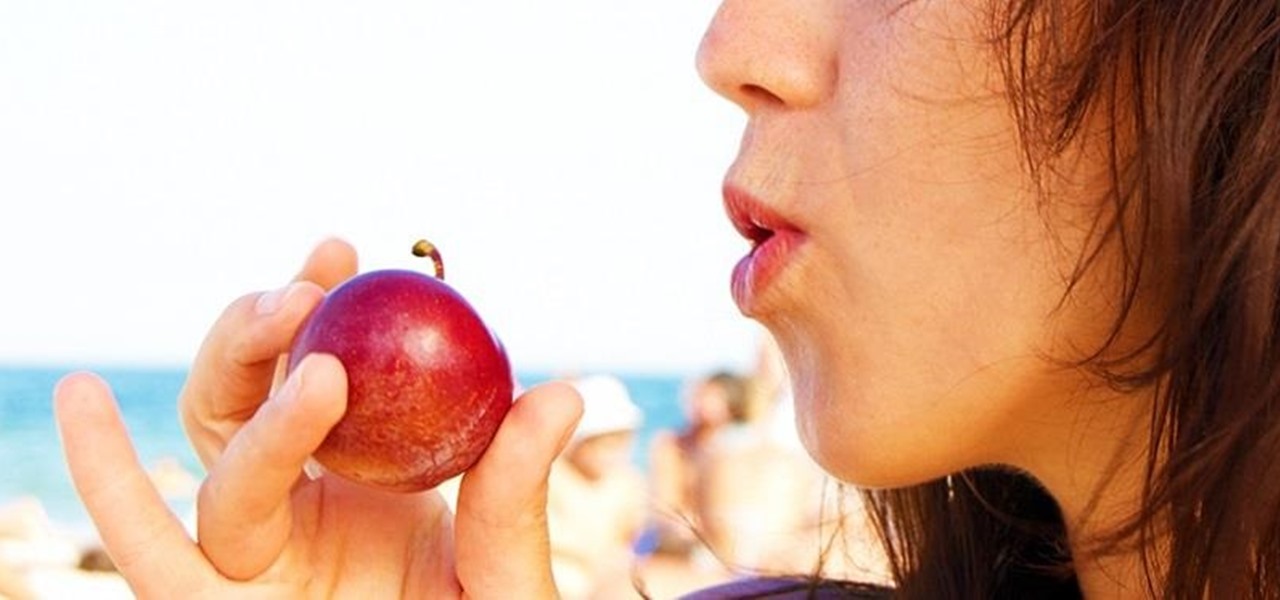



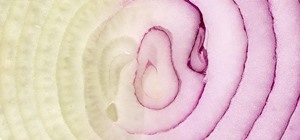

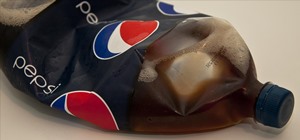
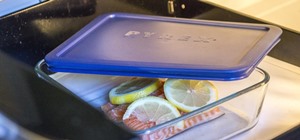

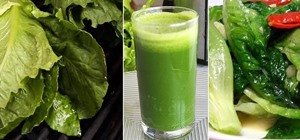
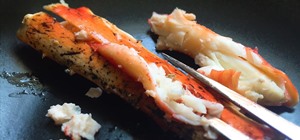

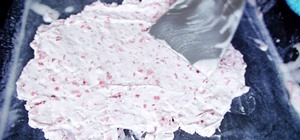

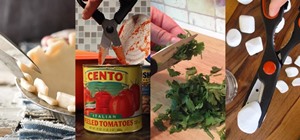

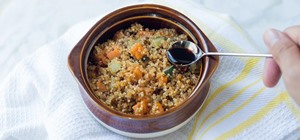
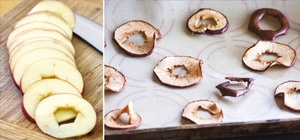
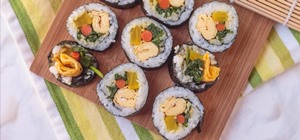

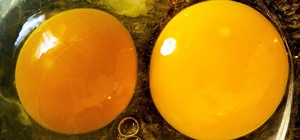

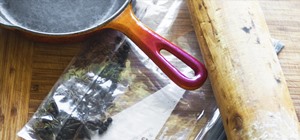
2 Comments
Great info! I am out in the sun a lot going to try this out!
This is the dumbest thing I've ever seen on the internet.
Share Your Thoughts